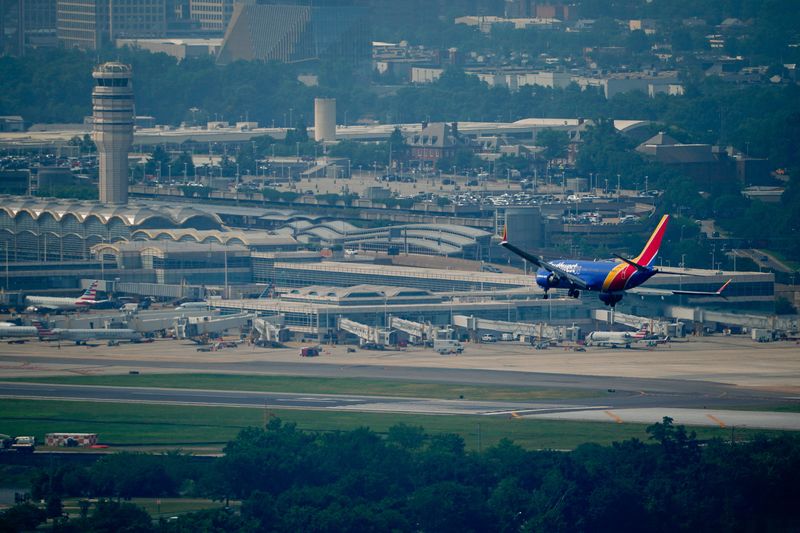By Rajesh Kumar Singh and Shivansh Tiwary
CHICAGO (MathHotels.com) – On Wednesday, Southwest Airlines revealed quarterly profit and revenue that were below expectations, influenced by weak demand from American consumers for travel.
Ongoing concerns regarding the overall economy, driven by President Donald Trump’s trade conflict and increasing living expenses, have negatively impacted carriers that mainly serve the U.S. domestic market and cost-conscious travelers. In an effort to boost demand, these companies have been utilizing ticket price reductions.
The airline, based in Texas, stated that demand for domestic leisure travel remained steady following a decline in March and April, with indications of recovery.
However, highlighting the ambiguity, it projected its unit revenue, or revenue per seat, for the third quarter to fluctuate between a 2% decrease and a 2% increase compared to the previous year.
In the second quarter, Southwest announced an adjusted earnings per share of 43 cents, which was lower than the 51 cents anticipated by analysts, as reported by LSEG.
It stated operating revenue of $7.24 billion for the quarter, whereas analysts had predicted $7.29 billion.
Similar to most U.S. airlines, Southwest removed its full-year financial outlook in April due to the trade conflict, which made it challenging to predict its operations.
On Wednesday, the company set a new 2025 projection ranging from $600 million to $800 million in earnings before interest and taxes. This is lower than its earlier estimate of $1.7 billion.
Southwest has had difficulty finding its direction following the COVID-19 pandemic. Its weak financial performance has increased the need to restructure its business approach.
In the second quarter, it started imposing fees on checked luggage, ending a distinctive policy of free baggage. It also introduced a new basic economy pricing option.
The company mentioned that the income from bag fees so far has surpassed its predictions. However, sales of basic economy tickets on its website declined following their introduction in May, which negatively impacted its per-unit revenue during the second quarter.
Southwest anticipates a effect on its third-quarter revenue per unit. At the same time, its non-fuel operational expenses are projected to rise by up to 5.5% in the third quarter compared to the previous year.
DEPRESSED DEMAND
The summer season, usually the most profitable time for airlines, is not performing as expected this year due to weak demand for regular economy seats, leading carriers to lower prices and weakening their ability to maintain high fares.
Delta Air Lines and United Airlines have experienced significant revenue increases from their premium sections, supported by wealthy passengers who are eager to pay for upgrades.
In comparison, budget airlines like Southwest face pressure to stay profitable as cost-conscious travelers continue to be cautious about spending on non-essential items.
The airline, nevertheless, remained optimistic about the second half of the year, pointing to increased demand along with the industry’s attempts to control seat availability and resist price-cutting pressures.
“Although initial, the latest industry demand indicates some recovery from the low levels recorded in the second quarter of 2025,” the company stated.
Several other airlines, such as United and Alaska, have also noted an increase in reservations over the past few weeks. However, the industry’s ability to set prices remains limited, especially within the domestic sector.
The biggest U.S. domestic airline, Southwest, experienced a 3% decrease in unit revenue compared to the previous year during the second quarter. Total passenger revenue also fell from the same period last year, accompanied by a significant reduction in passenger numbers.
The company stated that its available seats on flights were anticipated to remain the same in the third quarter compared to the previous year.
The organization will review its financial results with analysts on Thursday.
(Produced by Rajesh Kumar Singh in Chicago and Shivansh Tiwary in Bengaluru; Edited by Anil D’Silva, David Gregorio, and Cynthia Osterman)



